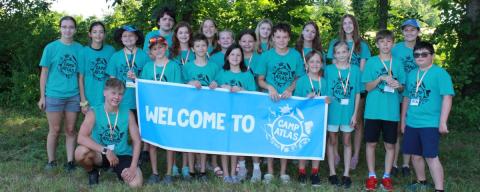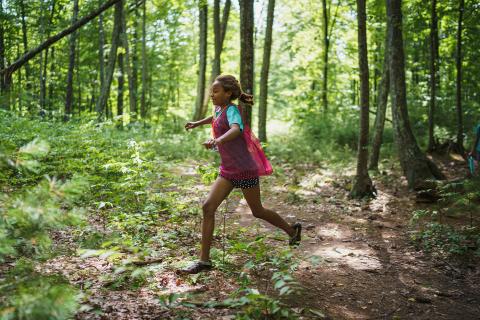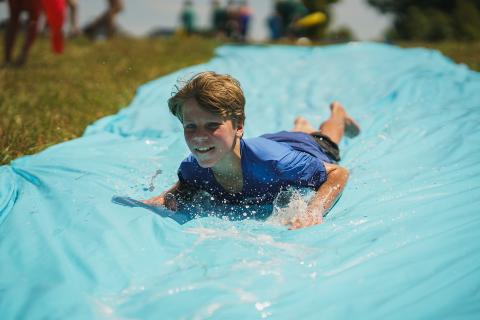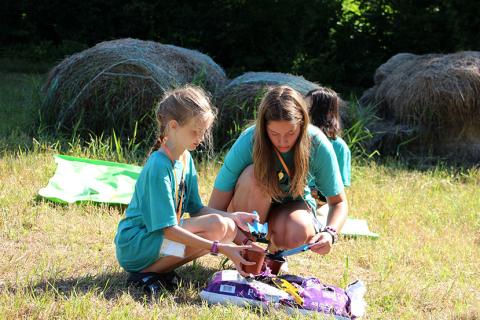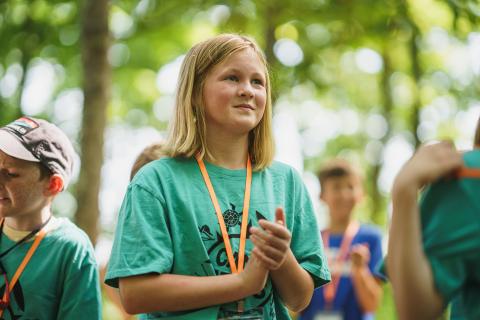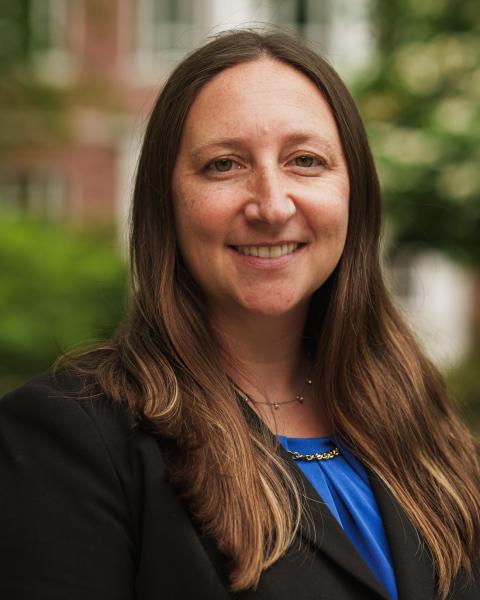Wild at Heart
From climbing trees to running around hay bales, there are a lot of life lessons to be learned while enjoying the great outdoors.
It is this shared belief in the power of play that has united UNH Extension’s Health and Well-Being and 4-H Youth Development teams with the Southeast Land Trust (SELT) of New Hampshire for a new educational partnership.
Through the All-Terrain Learning Adventures (ATLAS) program, students from Epping Middle School, Epping Elementary School and Lamprey River Elementary School in Raymond embark on regular field trips to SELT’s headquarters at Burley Farms in Epping.
This location features hundreds of acres of fields, forests and wetlands where students have ample opportunities to explore the outdoors while developing a sense of place.
“Our mission for ATLAS is to create the next generation of environmental stewards through inclusive, school-based, wild play programs,” says Lizzy Franceschini, SELT’s education program manager. “We use the power of the natural world as a catalyst for academic and emotional enrichment.”
Programs focus on social and emotional learning that aligns with New Hampshire’s College and Career Ready Standards and Work Study best practices. Lessons help students hone skills in communication, creativity, collaboration and emotional regulation.
In the summer, students can continue their growth at Camp ATLAS, which offers two weeklong programs designed for adventurers aged 8-12 and primarily serves youth in Rockingham and Strafford counties.
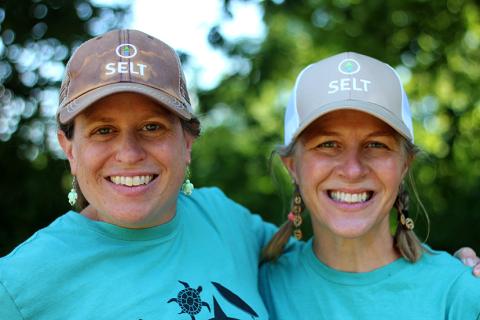
Lizzy Franceschini of SELT and Kristin Eberl of UNH Extension
Less Structure, More Responsibility
ATLAS programs support the notion that nature is more than just a backdrop; it can be a modality for wellness.
Kristin Eberl, UNH Extension field specialist for youth behavioral health and wellness, explains that through a less structured, more facilitated learning environment, youth can navigate social conflict while connecting with others and better understanding themselves.
“We are really focusing on mindfulness activities through everyday play,” she says.
Expressive outlets, like painting, writing and yoga, as well as more interactive ones like cooperative games, encourage youth to reflect on their own thoughts, feelings and behaviors in a community setting. Whether building forts, paddling kayaks or tracking wildlife, youth benefit from a safe space with the comfort of their peers and trained, supportive adults.
Passionate educators and administrators meet monthly during the school year to provide insight and feedback in the delivery of the nature-based wellness curriculum. Adult volunteers are onboarded through New Hampshire 4-H.
ATLAS also helps develop future educators, like UNH students Karalyn Wright ’24 and Elizabeth Sawyer ’24, who worked as camp counselors in the summer of 2024, and students from Epping High School who served as counselors-in-training.
Connecting Around the Campfire
An important component to developing these programs has been removing barriers to participation. Eberl says there can be physical, geographic and socioeconomic challenges that prevent youth from enjoying the rewards of outdoor play.
There are basic questions to ask, like, “Do they have the means to get outside? Do they have warm coats and hats?” says Eberl.
The school year program is embedded into the students’ curriculum. The summer camp is affordably priced at just $200 for a full week of all-day programming. Five campers received scholarships in 2024.
“We worked with school social workers and counselors to get students who might not otherwise have the capacity to attend camp, whether because of a language, financial or overall capacity barrier for their family,” Eberl says.
Once at Burley Farms, students are removed from digital devices that may consume much of their time at home. Without televisions, computers or smartphones, they must interact with their physical environment and with their peers. A shared goal, like keeping a fire lit, provides a mechanism for making deep and meaningful connections.
As one Epping student reflected, “I like our campfires, because we stay warm, but I mostly like the stories. You learn a lot about other kids. You learn you have a lot more in common than you thought.”
